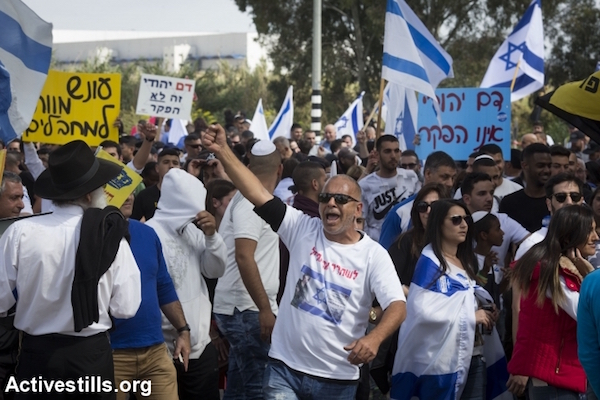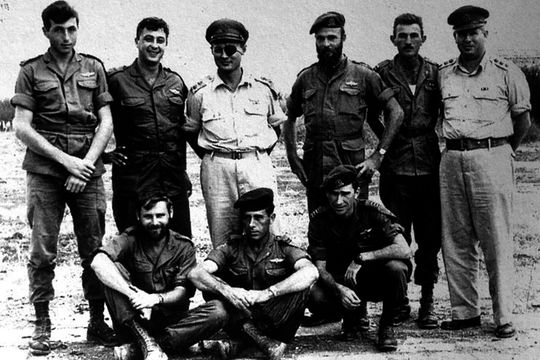The story of the Hebron shooting is a classic case of the lowly soldier syndrome — mostly Ashkenazi political leaders give the order, yet only those at the bottom of the ladder must pay the price.
By Adi Mazor and Tom Mehager

What is the difference between the Israeli soldier who shot 22-year-old Palestinian Abed al-Fatah Sharif in Hebron last week after a stabbing attack, and the soldiers from elite unites who shoot and kill Palestinian suspects? The difference is that the elite soldiers do behind the scenes — when no one is there to capture it on camera.
Since the Hebron shooting, much has been made of the Hebron shooter and his extreme right-wing views, the fact that he is a fan of Beitar Jerusalem (a soccer team associated with the Israeli Right) and his belonging to “La Familia,” Beitar’s far-right supporters’ group. This stems from an attempt to distinguish between the “good soldier” and the “bad soldier,” from talk about the IDF’s “code of ethics” and “purity of arms.” Let’s call a spade a spade: there are Asheknazi soldiers who go to the “right” units, where extrajudicial killings are a badge of honor. Then there are Mizrahi soldiers who go and carry out the most of the grunt work of Israel’s military control over the occupied territories. In this case, the soldier in Hebron executed an unarmed Palestinian who no longer posed a threat to anyone.
Take someone like Meir Har-Zion as an example. He and his friends from an elite paratroopers unit murdered five Bedouin as revenge of the murder of Har-Zion’s sister. They were never put on trial; Har Zion is viewed today as an Israeli hero. Or take kibbutzniks such as Ehud Barak or Defense Minister Moshe Ya’alon — both of whom were in charge of the targeted assassination of Khalil Al-Wazir (known as “Abu Jihad”) in his home in Tunis in 1988. Not only were they not condemned, the assassination, along with other operations, only bolstered their image as venerated IDF officers. Even the Hebron shooter’s family said the same in an open letter to Ya’alon last week, when they wrote: “Do not forget that you were in the same position as our son when you were in Abu Jihad’s room and made sure he was dead.”
We often hear legitimate criticism of the Ashkenazi Left, which never dared look in the mirror and speak about Asheknazi privileges or the injustices against the Mizrahi public. Yes, the Left in Israel earned the distance, not to say the loathing of the Mizrahim. But the Hebron case also demonstrates, in the most tragic way, how Mizrahim are the ones who pay the price for the policies of the Right — which is no less Asheknazi and elitist than the Left. Education Minister Naftali Bennett, who served in the elite Sayeret Matkal special forces unit, said that a “terrorist who endangers our soldiers’ lives must be neutralized;” Yair Lapid said that “whoever takes out a knife or screwdriver should be shot dead,” adding that the shooter would receive legal protection; and a year and a half ago, former Public Security Minister of Israel Yitzhak Aharonovich said that a “terrorist who harms civilians must be killed.”

It is true that there is often a gap between the army’s official orders and what happens in the field. In this case, of course, that gap is neither reasonable nor acceptable. The video shows that the soldier acted in direct violation of open-fire regulations.
Meanwhile, top Israeli politicians are calling on soldiers to violate these regulations, while at the same time abdicating any responsibility. The Hebron story is a classic case of the lowly soldier syndrome — everyone gives the order, mostly Ashkenazim, but only those at the bottom pay the price. It is no surprise, then, that the Beit Shemesh municipality organized a support rally for the soldier — the periphery is demanding equal treatment from the Israeli establishment.
The Hebron shooter is proof that the Mizrahi struggle will remain struck as long as we refuse to speak about the Israeli-Palestinian conflict. On the one hand, the establishment needs its black laborers — not only the Mizrahim but all Jews who do not belong to the Ashkenazi elite — who will enlist in the lower units in order to maintain the occupation and even carry out crimes such as in Hebron. The Ashkenazi Right will do everything it can to make sure this happens. Meanwhile, Mizrahim have no choice but to enlist in the army in order to prove that they are worthy citizens, often remaining in the IDF beyond their compulsory service as professional NCOs and officers, or joining the police or other security-related bodies.
This is nothing more than a reproduction of Ashkenazi-Mizrahi power relations: from schooling, through the army, all the way to the job market, Mizrahim play the role of the simple laborer, while Ashkenazim are compensated by the establishment in various ways.
Attorney Kochavi Shemesh, one of the leaders of the Black Panthers in Israel, put it as such: “There will never be equality or a chance for Mizrahim as long as there is an occupation and a national struggle. On the other hand, the national struggle will not end as long as Mizrahim are at the bottom of the ladder and can be used as an anti-Arab card.” These words were and remain accurate and relevant to our just struggle.
This article was first published in Hebrew on Haokets. Read it here.


